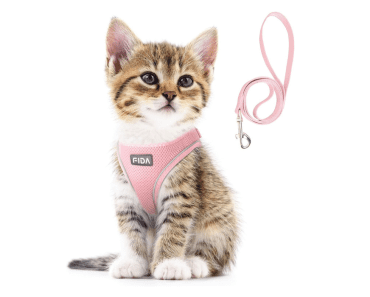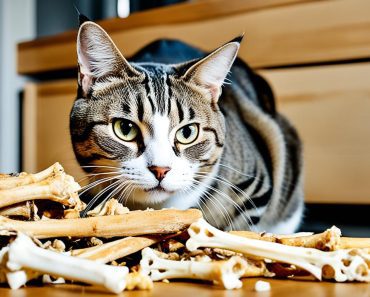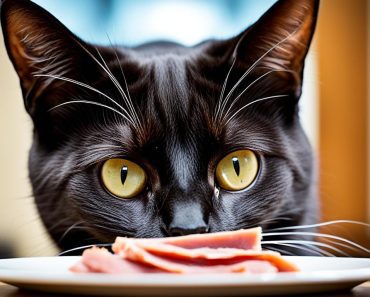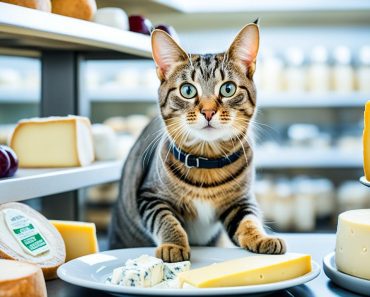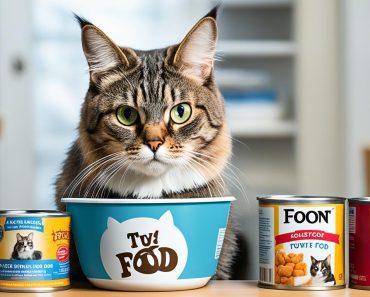As a pet owner, I understand how important it is to ensure that our furry friends receive a balanced and nutritious diet. When it comes to cats, their dietary requirements can be quite specific. That’s why it’s important to know which foods are safe for them and which ones should be avoided, including tomatoes.
So, can cats eat tomatoes?
Now, you may be wondering if cats can eat tomatoes. The answer is not straightforward. While the flesh of red, ripe tomatoes isn’t toxic to cats, it’s important to remember that their digestive system is optimized for meat consumption. This means that tomatoes should not be a regular part of their diet.
However, offering small pieces of fresh, red, ripe tomatoes occasionally is generally considered safe. Cats are curious creatures, and introducing new and safe food items like tomatoes can provide them with mental stimulation. Organic tomatoes are preferable to avoid any potential exposure to pesticides and herbicides. Additionally, commercial cat foods that contain tomatoes can also be a safe option.
Can Cats Eat Tomatoes? Yes, as long as they are ripe and fresh.
- Cats can eat ripe, red tomatoes in moderation.
- Their digestive system is optimized for meat consumption, so tomatoes should not be a regular part of their diet.
- Green tomatoes, stems, and leaves should be avoided due to their toxic chemicals.
- Organic tomatoes are preferable to avoid exposure to pesticides and herbicides.
- Commercial cat foods that contain tomatoes can also be a safe option.
Can Cats Eat Tomatoes?
Cats can enjoy the occasional taste of ripe, red tomatoes as a treat. However, it’s important to note that not all parts of the tomato are safe for feline consumption. Tomatoes should only be given in moderation and prepared in a specific way to ensure the safety and well-being of our feline friends.
When offering tomatoes to cats, it is crucial to choose ripe tomatoes without any green parts or stems. The green parts of tomatoes contain toxic chemicals called solanine and tomatine, which can be harmful to cats if ingested in large amounts.
It is also essential to offer plain, fresh tomatoes to cats. Canned tomatoes and tomato products, such as sauces and soups, may contain harmful spices and seasonings like garlic and onion. These ingredients can be toxic to cats and should be avoided.
Tomatoes should never replace a balanced and complete cat food diet. Instead, they should be given as an occasional treat. Remember, cats have specific dietary needs, and feeding them a variety of high-quality cat food is the best way to ensure their nutritional requirements are met.
Offering cats a safe and controlled amount of tomatoes can add some variety and flavor to their diet, as well as provide mental stimulation for curious felines. Just remember to keep the portions small and stick to ripe, red tomatoes without any green parts or stems. As always, if you have any concerns or questions about feeding tomatoes to your cat, it is best to consult with a veterinarian.
Benefits of Tomatoes for Cats
While cats do not receive the same nutritional benefits from tomatoes as humans do, there are still some potential advantages to incorporating them into their diet.
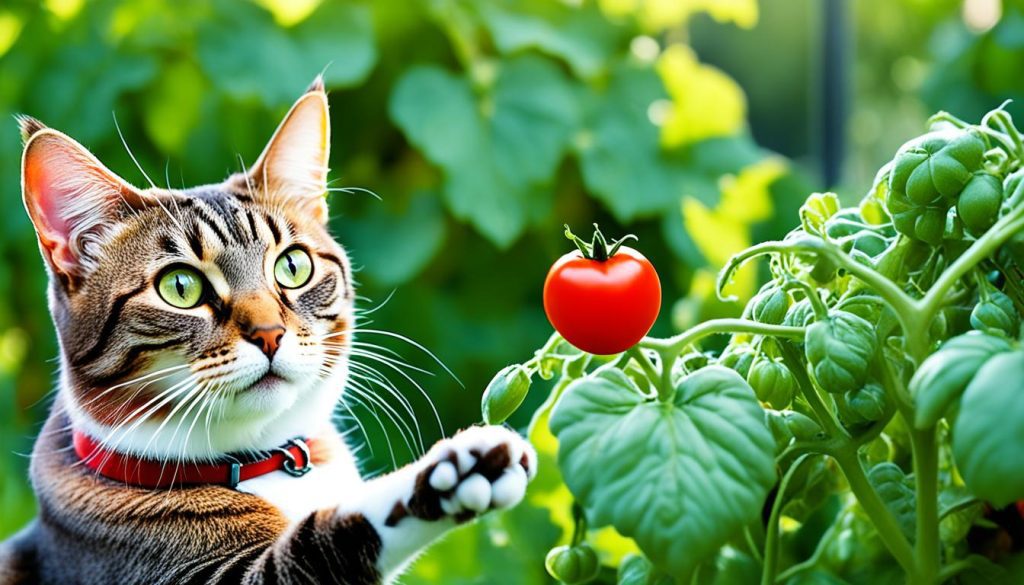
Tomatoes are approximately 94 percent water, making them a great way to provide extra hydration to your furry feline friend. Adequate hydration is important for maintaining overall cat health and can help prevent issues such as urinary tract problems.
The fiber content in tomatoes may also support digestion in cats. While cats typically obtain enough fiber from their regular cat food, introducing a new and safe food item like tomatoes can help promote healthy digestion and provide a change of taste and texture for curious cats.
It is important to note that tomatoes should be given to cats in moderation and as an occasional treat, rather than a staple in their diet. Cats are obligate carnivores, and their digestive system is optimized for meat consumption. Therefore, it is essential to prioritize a balanced and complete cat food diet to ensure they receive all the necessary nutrients.
Risks of Tomatoes for Cats
Feeding tomatoes to cats can pose potential risks and adverse effects on their health. It is important for cat owners to be aware of these risks to ensure the well-being of their feline companions.
Tomatoes contain toxic chemicals such as solanine and tomatine. These substances can be harmful if ingested in large amounts or if the cat consumes the unripe parts of the fruit, including green tomatoes, stems, and leaves.
Signs of tomato poisoning in cats may include nausea, vomiting, diarrhea, loss of appetite, slow heart rate, dilated pupils, drooling, and tremors. It is essential to seek veterinary attention if any of these symptoms are observed after tomato consumption.
In addition to the potential toxicity, tomatoes can also cause digestive issues in cats. Consuming tomatoes may lead to stomach upset, discomfort, and digestive disturbances.
Furthermore, commercially prepared tomato products such as sauces and canned tomatoes may contain harmful added ingredients like garlic, onions, salt, sugar, or preservatives. These ingredients are not suitable for cats and can further exacerbate health issues.
To ensure the safety of cats, it is best to avoid feeding them tomatoes or any tomato-based products. Instead, focus on providing a balanced and complete cat food diet recommended by a veterinarian.
Cats and Tomatoes: What You Need to Know
If a cat accidentally eats a small amount of ripe, red tomato, there is usually no need to worry. However, it is important to contact a veterinarian if the cat consumes a large amount of tomato, eats green, unripe tomato or the stems and leaves of the plant, or experiences any symptoms after eating tomato. It is also important to avoid giving cats commercially prepared foods that contain tomatoes unless specifically formulated for feline consumption.
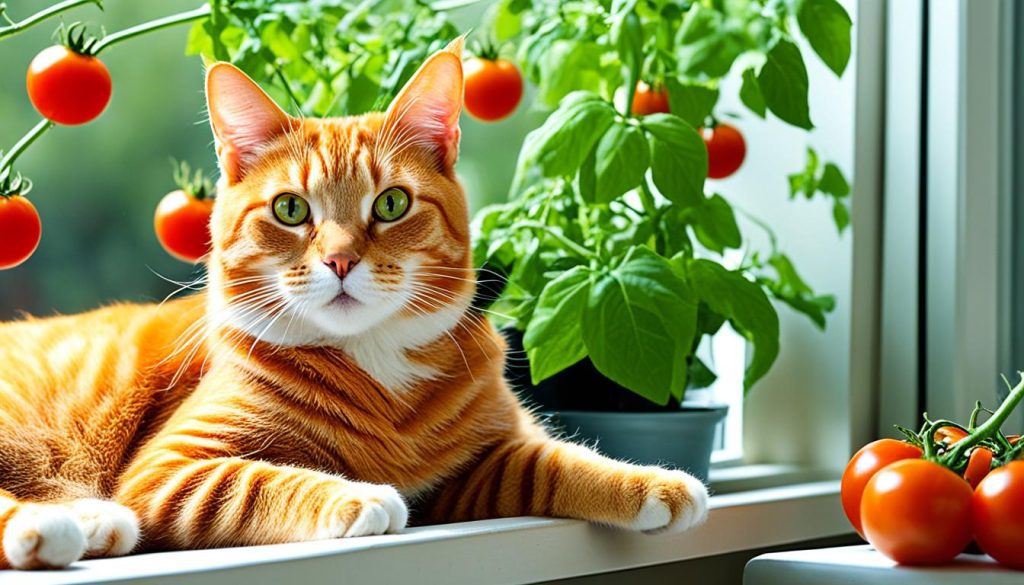
- If your cat happens to sneak a bite of a ripe, red tomato, there’s usually no cause for concern.
- However, it’s crucial to consult a veterinarian if your cat ingests a large amount of tomato, eats green or unripe tomatoes, or consumes the stems and leaves of the plant.
- Keep an eye out for any symptoms or adverse reactions after your cat eats tomatoes.
- Commercially prepared foods that contain tomatoes are generally not suitable for cats unless they are specifically designed for feline consumption.
Remember: While cats can tolerate small amounts of ripe, red tomatoes, it’s best to stick to their regular cat food diet to ensure they receive all the necessary nutrients. If you have any concerns or questions about feeding tomatoes to your cat, it’s always wise to consult with a veterinarian.
Cats and Tomatoes: A Comprehensive Guide
When it comes to feeding tomatoes to cats, it’s important for cat owners to have a comprehensive understanding of the topic. While ripe, red tomatoes can be safe for cats in small quantities, it’s crucial to remember that cats have specific dietary needs that should be met through a balanced and complete cat food diet. Tomatoes should only be considered as an occasional treat and should not replace their regular cat food.
Feeding cats a variety of nutritious and specially formulated cat food helps ensure that they receive all the necessary nutrients to support their overall health and well-being. While tomatoes can provide certain benefits, they should not be relied upon as a primary source of nutrition for cats.
Cats have a unique digestive system that is optimized for meat consumption. Although cats are obligate carnivores, their curiosity may lead them to explore different foods, including tomatoes. However, it’s important to exercise caution and moderation when introducing any new human food into a cat’s diet to avoid potential adverse effects.
If you’re considering offering tomatoes to your cat as a treat, it is recommended to consult with a veterinarian first. They can provide personalized guidance based on your cat’s individual needs and health condition. They may also advise on the appropriate portion size and frequency of tomato consumption for your cat.
Ensuring your cat’s diet is well-balanced and meets their nutritional requirements is essential for their overall health and longevity. While tomatoes can be enjoyed by cats in moderation, it’s best to prioritize a complete and balanced cat food diet recommended by experts in feline nutrition.
By following these guidelines and consulting with your veterinarian, you can make informed decisions regarding your cat’s diet and keep them healthy and happy for years to come.
Conclusion
While cats can eat ripe, red tomatoes in moderation, it is important to exercise caution and understand the potential risks involved. While the flesh of tomatoes is generally safe for cats, it should not be a regular part of their diet. Cats have specific dietary needs that are optimized for meat consumption, and tomatoes do not provide the necessary nutrients for their overall health and well-being.
It is essential to avoid giving cats green tomatoes, stems, and leaves, as these parts contain toxic chemicals that can be harmful to their health. Additionally, commercially prepared tomato products, such as canned tomatoes and tomato sauces, may contain additives like garlic and onion, which are not suitable for cats.
If you choose to offer your cat tomatoes as an occasional treat, make sure to provide plain, fresh tomatoes and avoid any spices, seasonings, or added ingredients. Always consult with a veterinarian before introducing any new human food into your cat’s diet to ensure their individual needs and health conditions are taken into consideration.

